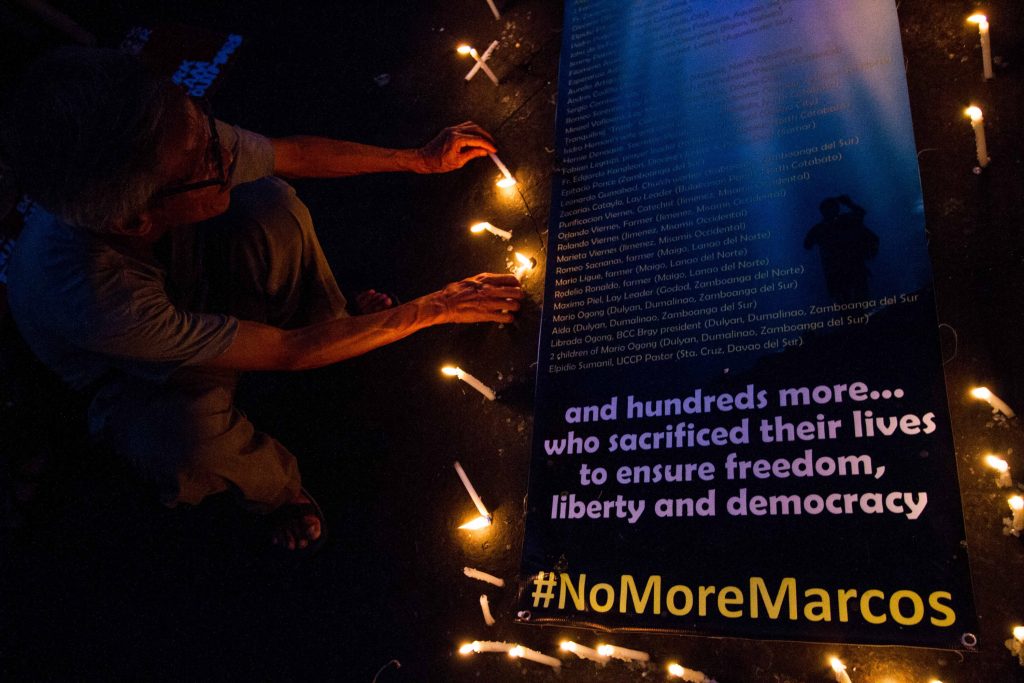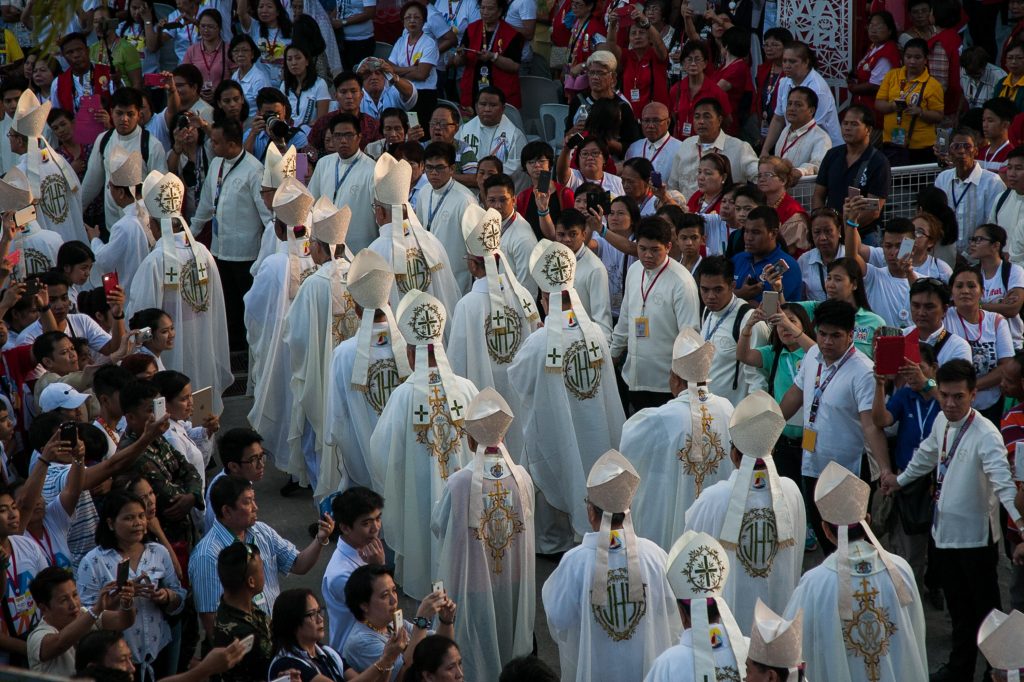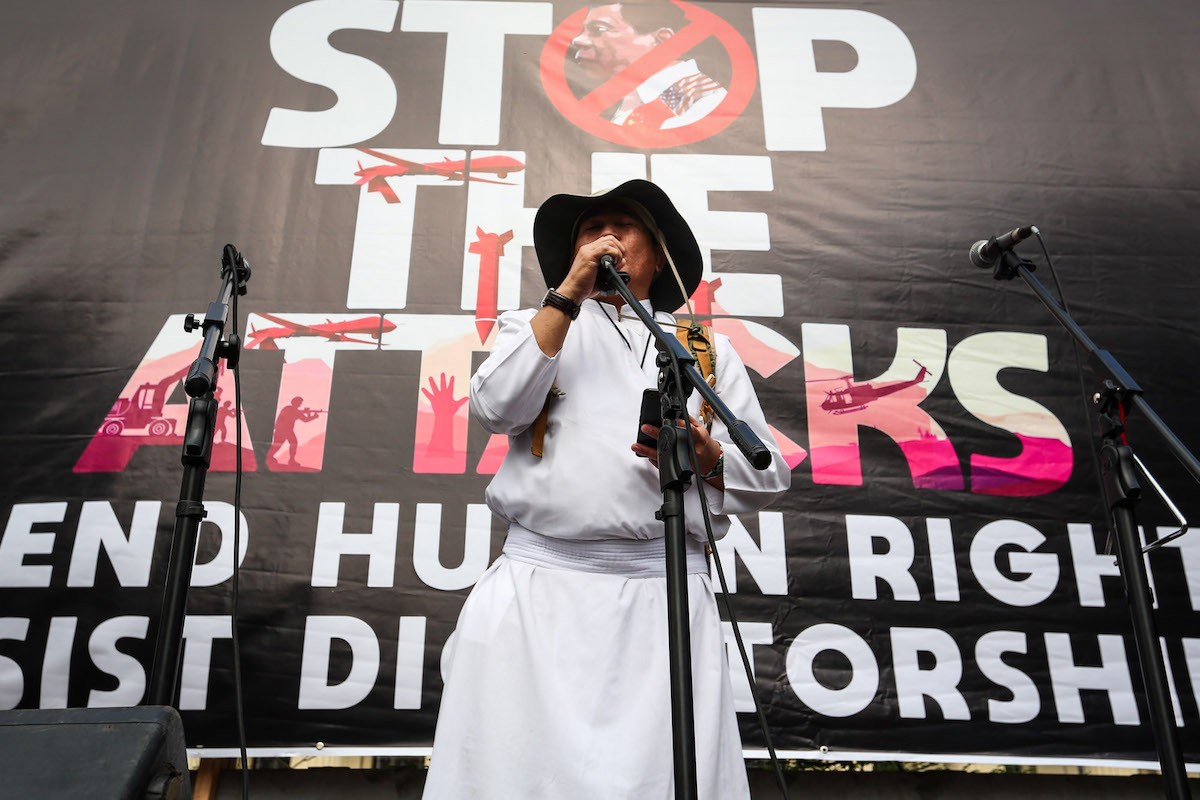Over a year after Ferdinand Marcos Jr’s presidential inauguration, some people are wondering why the Catholic Bishops’ Conference of the Philippines (CBCP) has been silent regarding critical issues under this administration.
This is quite perplexing since before the election the CBCP came out with a pastoral letter critical of the historical revisionism and disinformation carried out by the Marcos campaign and implicitly warning about the dire consequences of the return of the dictator’s son.
The clergy and religious who openly supported former Vice President Maria Leonor “Leni” Robredo have also become silent.
Marcos Jr. appears to govern unopposed. The opposition and revolutionary forces have apparently weakened. There is no one that can stop Marcos Jr. from using his position to obstruct the recovery of the family’s ill-gotten wealth, plunder the economy, and protect those guilty of corruption and human rights violations. The question is: will the Church be able to break its silence and inspire civil society to act?
The leadership of the Church (CBCP, clergy, and religious) has still to define the Church’s role under the Marcos II regime. This requires an accurate assessment of the situation and the problems the country is facing.
At present, the leadership of the Church faces the following key issues and concerns that need to be addressed: (1) the alleged anomalies in the presidential elections; (2) the impending economic and food crisis; (3) the crisis in education; (4) the continuing armed conflict; (5) human rights violation and accountability; and (6) climate change emergency.

There are serious allegations of the rigging of presidential elections by the Commission on Elections (COMELEC) headed by a former Marcos Jr. lawyer and composed mostly of President Rodrigo Duterte appointees from Davao City – the bailiwick of Duterte.
Among the latest proofs of the anomalies are the over 20,300 election returns from VCM machines transmitted by only one private IP address within the first hours of the counting.
The only way to settle if the elections were indeed fair is for the COMELEC to release the transmission logs. Civil society expects the Church to support the call for truth and transparency. The legitimacy of the Marcos II administration as well as the credibility of future elections is at stake. Unless addressed, this could develop into a political crisis.
This administration is failing to address adequately the economic and food crisis that is worsening due to the debt burden, climate change, Ukraine War, deglobalization, and corruption.
Billions are being wasted on useless presidential travel, bloated confidential/intelligence fund, and the Maharlika Investment Fund which are opportunities for graft and corruption.
Meanwhile, the president has not appointed any competent head of the Department of Agriculture which he continues to head. The price of rice and basic commodities continue to rise.
The dependence on imports fails to address food security and benefits the president’s associates many of whom are allegedly linked to smuggling and the recent artificial spike in the prices of goods (onions, sugar, etc.). According to the latest SWS survey, 2.7 million families experienced hunger during the first quarter of 2023. This number could continue to rise in the months and years ahead.
The poor quality of basic education, as well as the lack of values formation, contribute to a lack of competence, critical thinking, and discernment of good and evil. Thus, the majority of Filipinos are tolerant of the abuse of power, corruption, and lack of respect for human rights.
They are easily duped by the same kind of self-serving politicians who do not care about the common good and continue to lead the nation to ruin. The secretary of education with a bloated budget for confidential and intelligence funds is incapable of addressing this problem.
Her tooth-brushing drill campaign for school children and restoration of the mandatory Reserve Officers’ Training Corps (ROTC) is not enough. The Catholic schools and universities have not made any difference in this regard.
The ongoing cycle of violence and armed conflict especially between the armed revolutionary movement and the Armed Forces of the Philippines continues. The government is not open to the resumption of peace negotiations and only seeks the surrender of those who have taken up arms and giving them amnesty.

The red-tagging of legitimate opposition and civil society groups and the military operations cannot end the armed conflict. As long as the economic and political system responsible for poverty, inequality, injustice, and corruption is not transformed, there will always be people and movements that will resort to violence.
Human rights violations and extrajudicial killings continue even if the incidence may not be as high as in the previous administration. The Marcos regime, as well as the super-majority in the Senate and House of Representatives, are unwilling to hold accountable those responsible and will not cooperate with the International Criminal Court. In spite of the Supreme Court ruling stating that the government has the obligation to do so even after withdrawing in 2019.
There is no sense of urgency in addressing the climate change emergency. We are already experiencing the effects, especially with the regular occurrence of extreme weather patterns. Much of the lowland areas near the seas would be underwater in the next twenty to thirty years if the ecological crisis is not averted.
In season or out of season, the leadership, as well as the members of the Church – whether bishops, clergy, religious, and laity – cannot abandon their mission as prophetic conscience and servants of the people and society in general.
Despite perceived powerlessness and declining influence, the Church has an important role in bringing about social transformation as the nation finds itself in a long dark night.
Fr. Amado Picardal is a Redemptorist priest and human rights and peace advocate. He was executive secretary of the CBCP Episcopal Committee on Basic Ecclesial Communities. He also served as co-executive secretary of the Commission of Justice, Peace, and Integrity of Creation of the Union of Superiors General in Rome.







